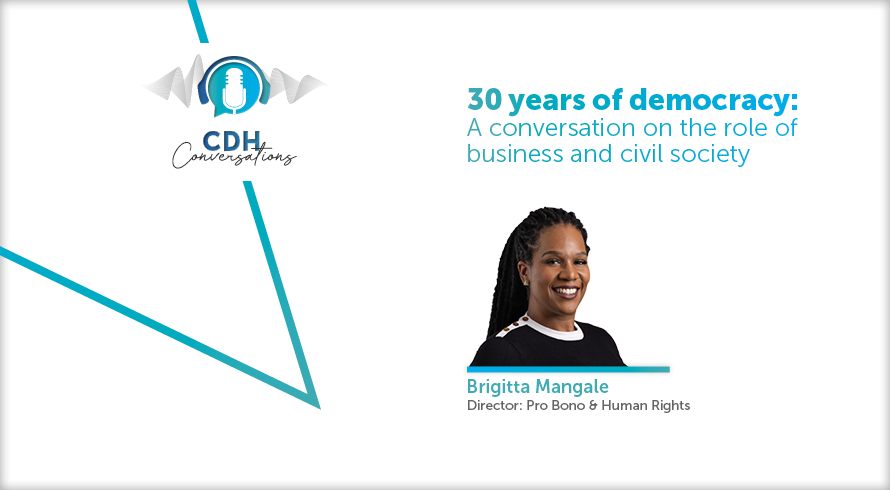‘Anything goes, or does it?’ – How far can the pursuit of shop stewards go?
In the case of the National Union of Metal Workers of South Africa (NUMSA) obo Motloba v Johnson Controls Automotive SA (Pty) Ltd and Others (PA6/15) [2017] ZALAC 14 (3 February 2017), a shop steward was dismissed for serious acts of misconduct. These included the intimidation and assault of his manager, following a heated exchange while carrying out his functions as a shop steward.
The employee referred his dismissal to the CCMA for arbitration, seeking reinstatement on the basis that same was procedurally and substantively unfair. The arbitrator found essentially that because the employee had approached the manager in his capacity as a shop steward, his interactions with her had occurred out of the traditional context of an employer-employee relationship. Consequently, the rules relating to insolence and insubordination that would normally apply to such a relationship had been relaxed in favour of facilitating effective negotiations between the parties.
A consequence of this finding was that the shop steward was granted immunity for all acts of misconduct purportedly performed in relation to his duties as a negotiator and on behalf of his fellow employees. The employee’s dismissal was therefore found to be substantively unfair and he was awarded compensation.
Dissatisfied with the arbitrator’s failure to order reinstatement and pursuant to a finding of substantive unfairness, the employee took the decision on review to the Labour Court where the employer filed a counter review.
The Labour Court reasoned that while a degree of immunity from disciplinary action must be granted to shop stewards and in order to allow them to effectively perform their duties, this immunity should not have the effect of placing shop stewards above reproach for all acts of misconduct committed against the employer. The Labour Court accordingly held in favour of the counter-review, finding that the employee’s dismissal was both procedurally and substantively fair.
The matter was then appealed to the Labour Appeal Court, which further analysed and clarified the extent of the immunities granted to shop stewards in the performance of their duties. While shop stewards ought to be able to perform their duties without fear of victimisation by their employers, Phatsoane AJA held that this should not be interpreted to mean that representatives have been given total license to behave in a manner that is unreasonably confrontational or fraught with unchecked aggression.
It is clear from this judgment that, irrespective of the employee’s status as a shop steward, interactions between employees and their employer must remain respectful and appropriate in the context of the employment relationship between them at all times. The Labour Appeal Court reaffirmed that, even when engaging in collective bargaining, threats of violence and intimidation have no place in facilitating meaningful employee-employer collaboration.
This judgment further develops the findings of the Labour Appeal Court in the case of National Union of Mineworkers and Others v Black Mountain Mining (Pty) Ltd (2010) 31 ILJ 1779 (LAC) in which it was found that the unique dual nature of a shop steward as an employee and negotiating representative, does allow for more flexibility in their interactions with their employers and particularly in the context of strike action however, the Labour Appeal Court also stressed this flexibility is granted with the aim of encouraging healthy and productive labour relations and should not be construed as giving employees free reign to engage in wanton acts of violence and misconduct.
The Court has therefore reaffirmed that even in the absence of strike action, the balance between a reasonable tolerance of insolence on the part of the employer, must be tempered by a minimum standard of conduct expected of an employee under all circumstances.
Accordingly, employees should monitor the nature of their engagements with shop stewards, especially in the context of strike action where tensions increase, as such behaviour will not enjoy protection from the courts.
The information and material published on this website is provided for general purposes only and does not constitute legal advice. We make every effort to ensure that the content is updated regularly and to offer the most current and accurate information. Please consult one of our lawyers on any specific legal problem or matter. We accept no responsibility for any loss or damage, whether direct or consequential, which may arise from reliance on the information contained in these pages. Please refer to our full terms and conditions. Copyright © 2025 Cliffe Dekker Hofmeyr. All rights reserved. For permission to reproduce an article or publication, please contact us cliffedekkerhofmeyr@cdhlegal.com.
Subscribe
We support our clients’ strategic and operational needs by offering innovative, integrated and high quality thought leadership. To stay up to date on the latest legal developments that may potentially impact your business, subscribe to our alerts, seminar and webinar invitations.
Subscribe




